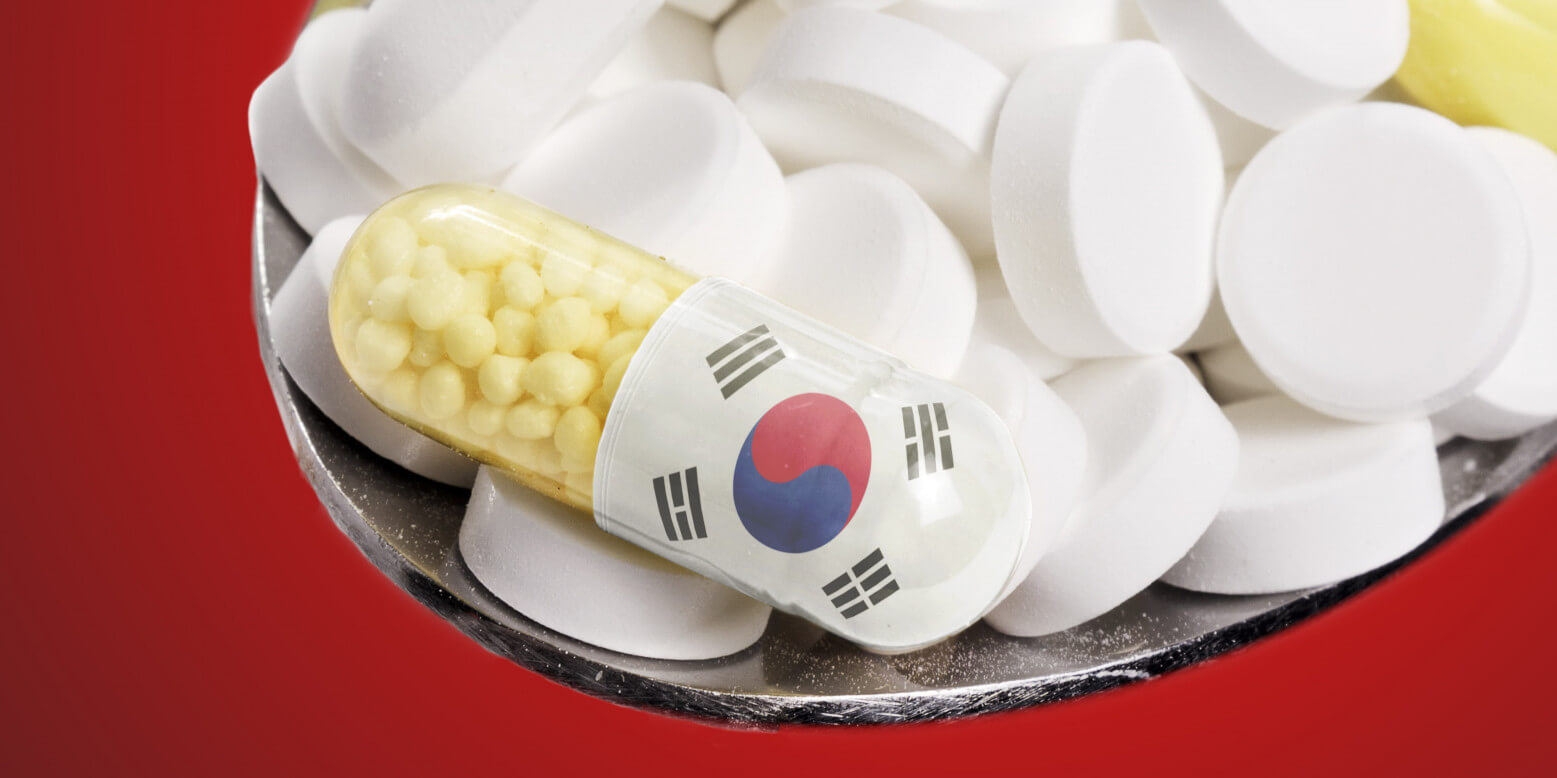South Korean pharma players are getting halal certification for the Indonesian market, while also eyeing other Muslim markets.
Taipei: South Korea’s pharmaceutical industry, a global player with exports reaching South Korean Won KRW7.93 trillion ($6.8 billion) in 2020, has been expanding its foothold in the world’s Muslim markets, offering guarantees that manufacturers avoid inputs that are offensive to Muslims. This includes certain animal-derived materials, especially capsules from pig gelatin, and ingredients or processes utilising alcohol.
The South Korea industry has made particularly strong progress in the halal market by forming joint ventures with Indonesian companies. For example, CKD OTTO Pharmaceuticals is one company that has been making progress in targeting international halal markets. A joint venture company between Chong Kun Dang Pharm Corp, a leading South Korea pharmaceutical company, and PT Otto Pharmaceutical Industries, part of the Indonesian pharma-focused MENSA Group, it signed in mid-November an export agreement worth $32 million with Saidal, the largest state-run pharmaceutical company in Algeria. According to the contract, CKD OTTO will export anticancer injections produced at its Indonesian plant to Algeria until 2026.
The exported anticancer drugs have been approved by Saidal as meeting Algerian standards, which can include following key halal standards on materials. CKD OTTO was well placed to secure this deal given that in 2019 it set up an Indonesian halal-certified anticancer drug plant in Cikarang, West Java.
Other recent advances cases include the South Korea-Indonesian joint venture Daewoong Infion in May 2020 obtaining halal certification for the diabetic foot ulcer drug Easyef from the Indonesian halal certification agency LPPOM MUI (Indonesian Council of Ulama - Majelis Ulama Indonesia).
This follows Daewoong Infion in January 2020 obtaining halal certification for the erythropoietin (EPO) Epodion as the region’s first epoetin biosimilar. Epodion is used for the treatment of anemia in patients with chronic kidney failure, chemotherapy cancer patients who experience anemia, and can increase red blood cells and prevent a decrease in hemoglobin levels for patients undergoing major surgery. Daewoong Infion was set up in 2012, operating Indonesia's first biologic plant, in Surabaya, a port city on East Java.
Other South Korean pharma companies that have established joint ventures with Indonesian counterparts include Ildong Pharmaceutical and DongA-ST, both based in the South Korean capital Seoul.
The export focus is unsurprising, given South Korea’s own Muslim population stands at approximately 150,000, including nationals and foreigners, which is obviously not enough to make it a commercially viable target.
According to the Korea Halal Association (KOHAS), holistic data on domestic and export sales of South Korean pharmaceutical products has yet to be gathered, reflecting the nascent nature of this segment.
So, in the meantime, “Indonesia is a very important bridgehead for Korean pharmaceutical companies, because the Indonesian market itself is large, and at the same time, it is possible to export to other Islamic countries through Indonesia's production base,” said James Noh, president of the Korea Institute of Halal Industry (KIHI), a halal product promotion organisation that works with South Korean producers.
Speaking to Salaam Gateway he added that “the new agreement between CKD OTTO and Saidal explains why Korean pharmaceutical companies want to enter Indonesia to produce halal pharmaceuticals”.
Representatives of South Korea’s halal certification bodies also perceive a lot of momentum. Elif Ovut, assistant manager of the Korea Muslim Federation’s KMF Halal Committee, told Salaam Gateway that the most current pharmaceutical topic for KMF is that some South Korean companies have sought halal certificates from the KMF for COVID-19 test kits. Ovut did not disclose the companies’ names.
“[South] Korea is a developed country related to medical care, so Islamic countries are interested in it, and it is expected to be a huge market in terms of trade, such as importing raw materials and exporting products,” Ovut said.
Korean halal pharma is growing alongside the development of halal food and dietary supplements made by the country’s diversified industrial base, added Ovut.
Saifulla Jo, chairman of the Korea Halal Association (KOHAS), another certification body, predicted that the “health supplement segment is where we perceive the most momentum,” noting that specialist medicines such as anti-cancer prescription drugs have some built in weaknesses as regards the halal market. That is because Muslims are allowed to turn to haram (forbidden) pharmaceuticals to treat serious diseases, such as cancer, unless there other halal substitutes are easily available. “There are a lot of exceptions in halal policy especially when it comes to medicine, so I am worried about such a shift of focus towards anti-cancer prescription drugs,” Jo said.
Jo did not disclose company names but highlighted vitamin and ginseng drinks that are already exported from South Korea to the Middle East, Malaysia, and Indonesia. The Korea Halal Export Association, for its part, lists several health supplements companies as its members, including Yangsan-based MSC and Seoul-based Ozar. MSC offers halal-certified Fucoidan, a supplement made of brown algae with claimed anti-cancer and anti-obesity qualities that “is thought to be the reason for longevity in towns of Okinawa, Japan,” the company writes in the export association’s member directory. Ozar offers anti-cancer foods containing "Korea native cactus" and "pine needle.” Ozar lists the United Arab Emirates (UAE), India and Turkey among its main markets.
As well as such supplements, South Korea’s pharmaceutical industry is also generating halal business through its packaging systems. Several US-based pharmaceutical manufacturers ship halal-certified pharmaceuticals in capsules to South Korea, which are then packaged for re-export, said Jo.
“South Korea has very good packaging designers and offers cost-effective pharmaceutical packaging services” promoting sales of such products in the Middle East and south-east Asia, he said.
© SalaamGateway.com 2021 All Rights Reserved


Jens Kastner